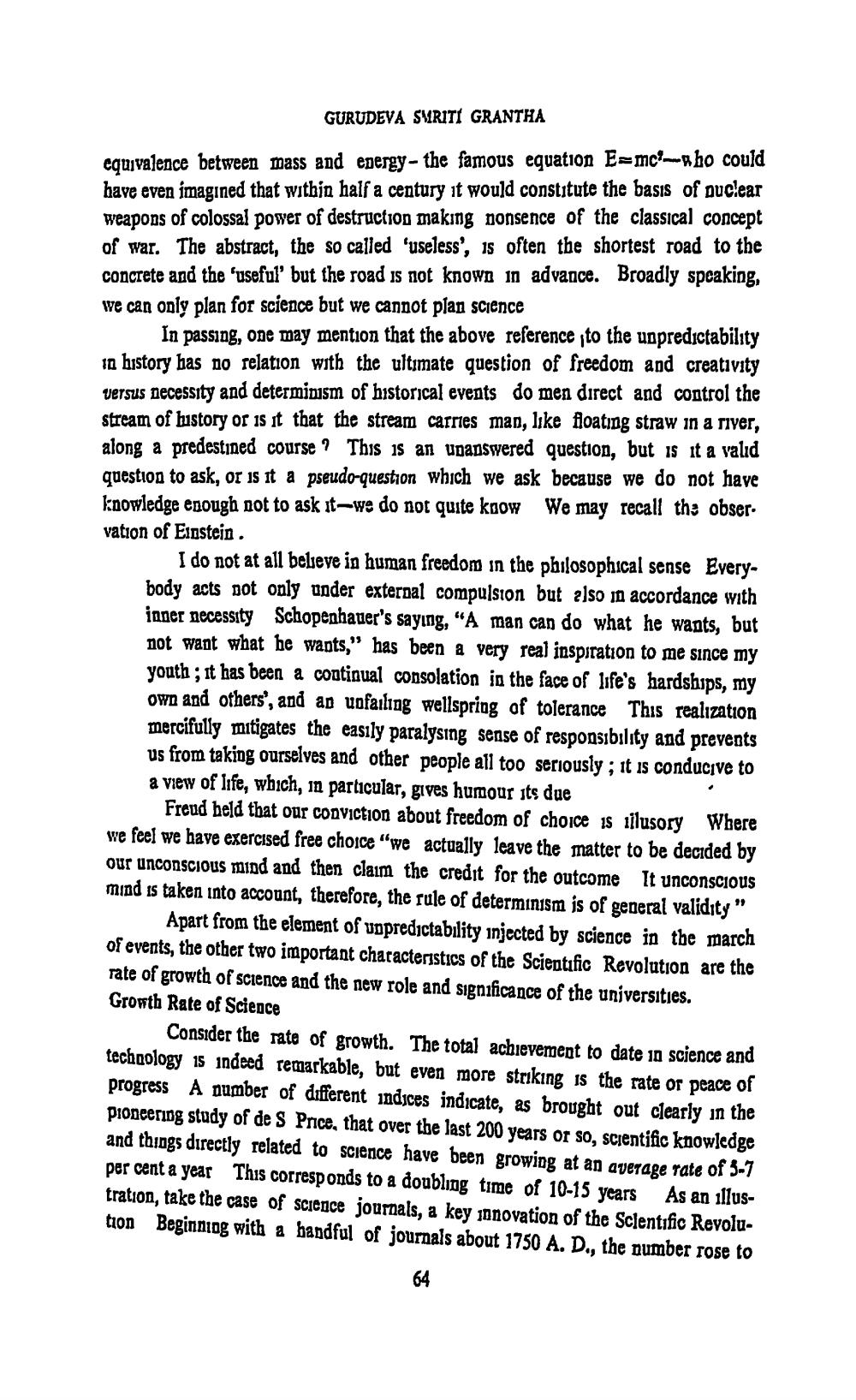________________
GURUDEVA SMRITI GRANTHA
equivalence between mass and energy - the famous equation E=mc-nho could have even imagined that within half a century it would constitute the basis of nuclear weapons of colossal power of destruction making nonsence of the classical concept of war. The abstract, the so called 'useless', is often the shortest road to the concrete and the 'useful' but the road is not known in advance. Broadly speaking, we can only plan for science but we cannot plan science
In passing, one may mention that the above reference to the unpredictability ta history has no relation with the ultimate question of freedom and creativity versus necessity and determinism of historical events do men direct and control the stream of history or is it that the stream carries man, like floating straw in a river, along a predestined course? This is an upanswered question, but is it a valid question to ask, or is it a pseudo-question which we ask because we do not have knowledge enough not to ask it—we do not quite koow We may recall the obser. vation of Einstein.
I do not at all believe in human freedom in the philosophical sense Everybody acts oot only under external compulsion but also in accordance with inner necessity Schopenhauer's saying, “A man can do what he wants, but not want what he wants," has been a very real inspiration to me since my youth ; it has been a continual consolation in the face of life's hardships, my own and others", and an uofailing wellspring of tolerance This realization mercifully mitigates the easily paralysing sense of responsibility and prevents us from taking ourselves and other people all too seriously; it is conducive to a view of life, which, in particular, gives humour its due
Freud held that our conviction about freedom of choice is iilusory Where we feel we have exercised free choice "we actually leave the matter to be decided by our unconscious mind and then claim the credit for the outcome It unconscious mind is taken into account, therefore, the rule of determinism is of general validity"
Apart from the element of unpredictability injected by science in the march of events, the other two important characteristics of the Scientific Revolution are the rate of growth of science and the new role and significance of the universities. Growth Rate of Science
Consider the rate of growth. The total achievement to date 10 science and technology is indeed remarkable, but even more striking is the rate or peace of progress A number of different indices indicate, as brought out clearly in the pioneering study of de S Price, that over the last 200 years or so, scientific knowledge and things directly related to science have been growing at an average rate of 5-7 per cent a year This corresponds to a doubling time of 10-15 years As an illustration, take the case of science journals, a key innovation of the Scientific Revolution Beginning with a handful of journals about 1750 A. D., the number rose to
64




